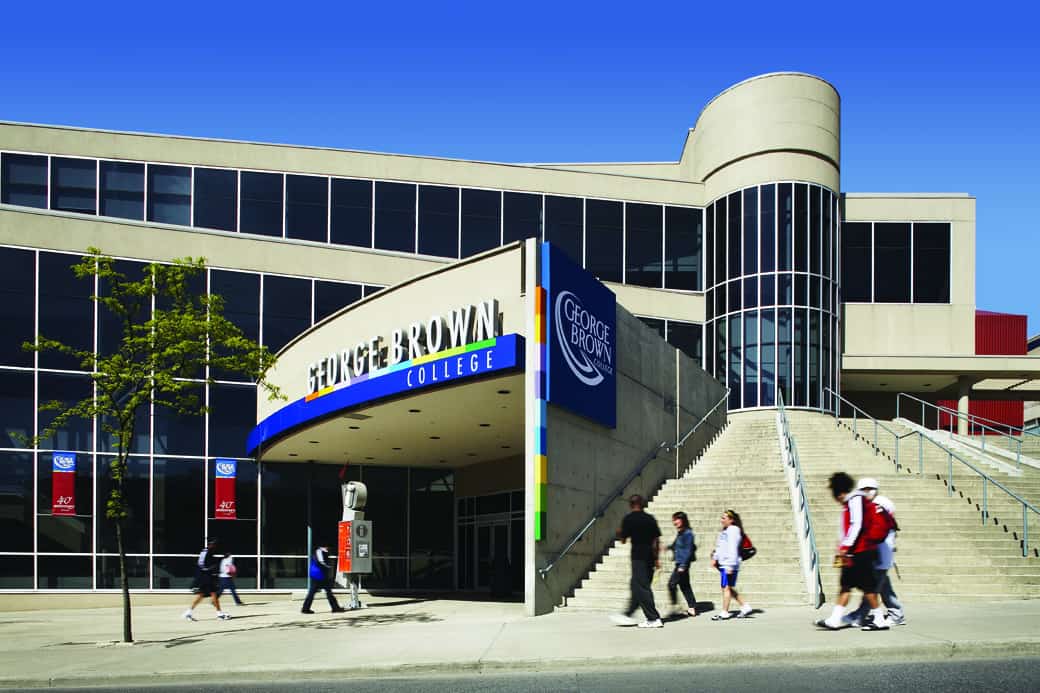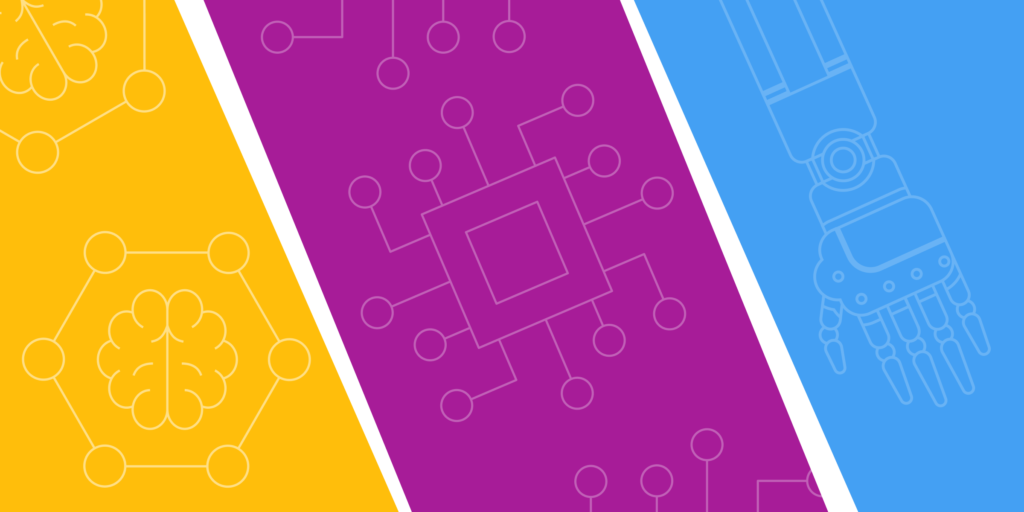This week we wrapped up our Careers of Tomorrow series with an exciting dive into the world of blockchain! For many of us, Bitcoin and cryptocurrency immediately come to mind when we hear the word “blockchain,” but there are countless use cases for this rapidly evolving technology.
To learn more, we were joined by some friends from the Blockchain Development program at George Brown College in Toronto, Canada. The panel included instructors Ceit Butler, George Petrovic, Alim Khamisa, Marc Lijour, and Dave McKay, as well as student Matthew Glezos.
Read on for a look at one way this technology is being used. We’ll also explore Blockchain Development at George Brown College, the first blockchain certificate program offered by a Canadian post-secondary institution.
You can watch the workshop on-demand in this video:
What Is Blockchain?
What exactly is blockchain anyway?
George Brown College defines blockchains as “digital, decentralized ledgers that record transactions shared among many people. Once data is entered on a blockchain it is secure, easy to track and permanent. This can help businesses improve efficiency of transactions while lowering the chance of data mishandling and fraud.”
Exploring a Blockchain Use Case
From tracing pollutants and managing carbon footprint to optimizing the supply chain and determining which materials are recyclable, the opportunities for employing blockchain are almost endless. According to Marc Lijour, “Blockchain enables a number of use cases that other technologies can’t with the same degree of trust, confidence, and efficiency.”
Here’s one unexpected way blockchain is being used:
Verifiable Credentials
Verifiable credentials harness the power of blockchain technology to confirm a person’s identity. It ensures that individuals are only providing the data needed to accomplish this—“giving people ownership over their data.” For instance, a driver’s license, which may be used to verify age, contains a lot of data beyond just a person’s date of birth. Only the piece of data that verifies date of birth should be shared.
“The pandemic has really accelerated [the need for verifiable credentials] because we can’t go and do things in person,” explains Dave McKay. “I’m working on a proof of concept with the province of Ontario and the TD Bank, where they’re going to be issuing a driver’s license from the province, and you can use that to open up an account online with the bank.” It means that rather than physically going into the branch and presenting your credentials, you’ll be able to open an account from the comfort of home.
While it sounds like this could open up the potential for fraud, the reverse is true. “When the government issues the verifiable credential, it’s at a higher assurance level than the plastic driver’s license because it can be verified at any point and machine verified. There’s a cryptographic signature that shows that the government issued this to this person. It’s a really powerful thing because documents can be doctored, whereas cryptography, as far as I know, in this case, can’t be.”
Be sure to watch the entire workshop to learn about other blockchain use cases, such as decentralized finance (DeFi), smart cities, and non-fungible tokens (NFTs).

Blockchain Development at George Brown College
1-Year College Certificate
George Brown College’s Blockchain Development certificate program is the first of its kind in Canada and was launched in 2018, in response to a shortage of blockchain developers.
The program prioritizes “designing and implementing decentralized applications by leveraging blockchain technology.” Students will also gain a solid grounding in full-stack development, ensuring they are equipped with the skills and knowledge to hit the ground running as a highly sought-after blockchain developer.
Students will obtain a myriad of skills designed to help them thrive in the industry, including:
- Smart contracts
- Design patterns for blockchain
- Distributed applications (dApps)
- Full-stack development
- Blockchain architecture, security practices, laws and regulations, and more
Program Outline
The Blockchain Development certificate program is divided into three semesters, as follows:
- Semester #1: Blockchain theory and full-stack development
- Semester #2: Blockchain development
- Semester #3: A work term with the option of a paid or unpaid co-op experience, or the chance to work on an industry-led work-integrated research project
Co-op
Students who pursue a co-op placement will have no trouble securing a fantastic experience. Toronto is described as a “hotbed of blockchain technology.” For instance, much of the development of Ethereum, the decentralized, open-source blockchain, took place in Canada’s most populated city. Toronto also boasts a thriving blockchain startup community. It’s no surprise that George Brown College student Matthew Glezos was able to land a fantastic co-op placement at Optyfi, a multi-strategy DeFi protocol on the Ethereum network.

Taught By Industry Leaders
Blockchain Development students benefit from being taught by instructors who are also actively working in the industry—ensuring the curriculum is up-to-date and relevant.
“This is an evolving technology,” explains Ceit Butler. “We couldn’t print a textbook—it would be obsolete before you crack the first cover open. If there are technical changes implemented in the morning in any of the technology stacks that we are using, you need the lecture to reflect it that night. We can be that dynamic because we all come from industry.”
Social Live
Can’t get enough of blockchain? Watch our social live as Dr. Mike Wittie, Associate Professor and Director of the Networks Lab from Montana State University, explains how a computer science education can lead to a successful career in blockchain.
Computer Science and Careers in Blockchain Video:
We were also joined by Sean Woodhead and Bashaar Ansari of York University – School of Continuing Studies for a look at their postgraduate certificate in Back-End and Blockchain Development.
Blockchain Development Studies Video:
Don’t forget to check out our Careers of Tomorrow recaps on Mechatronics and Robotics and Artificial Intelligence and Deep Learning.



